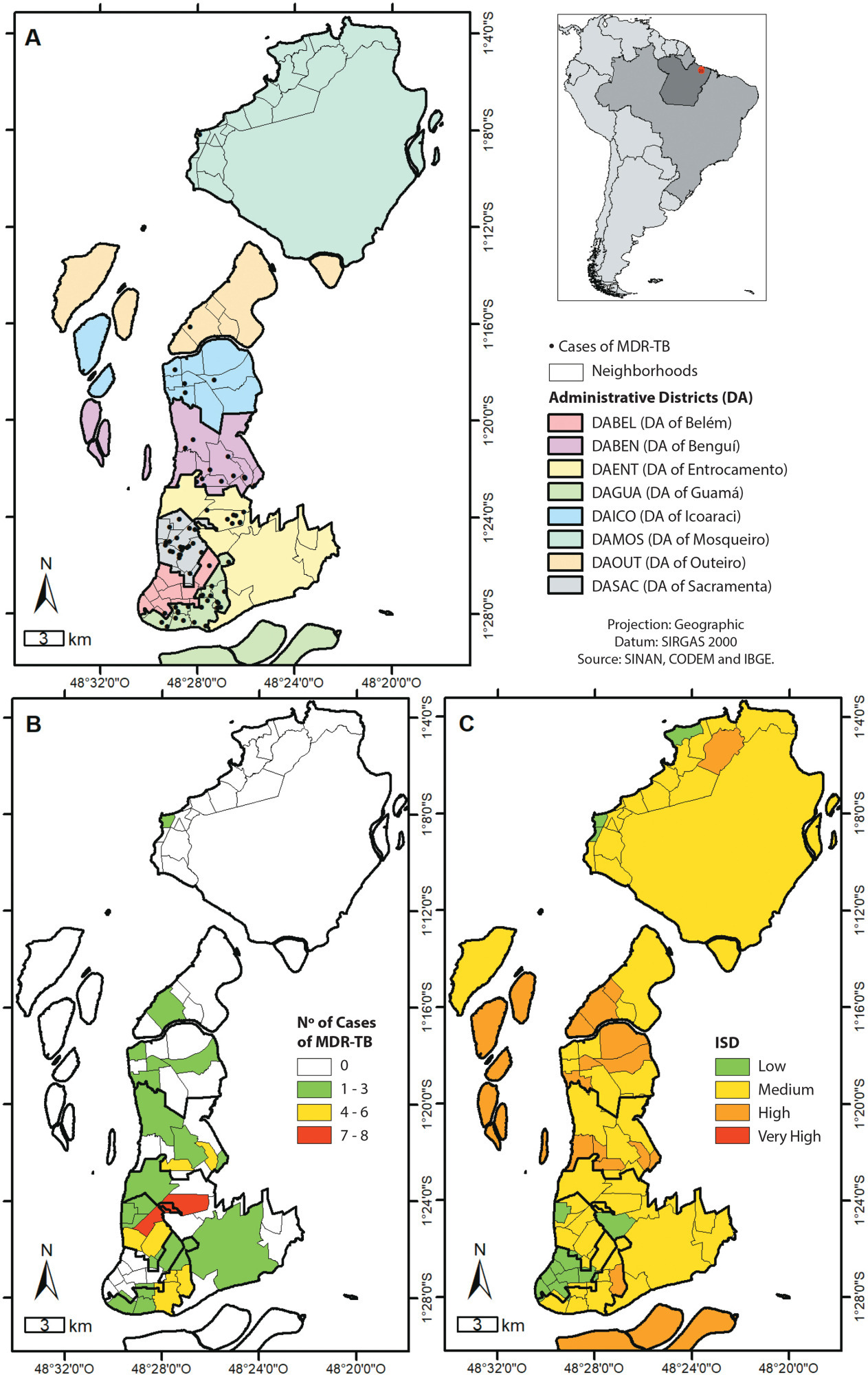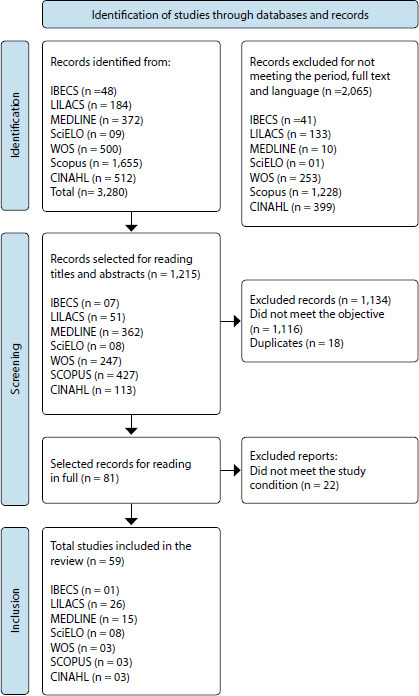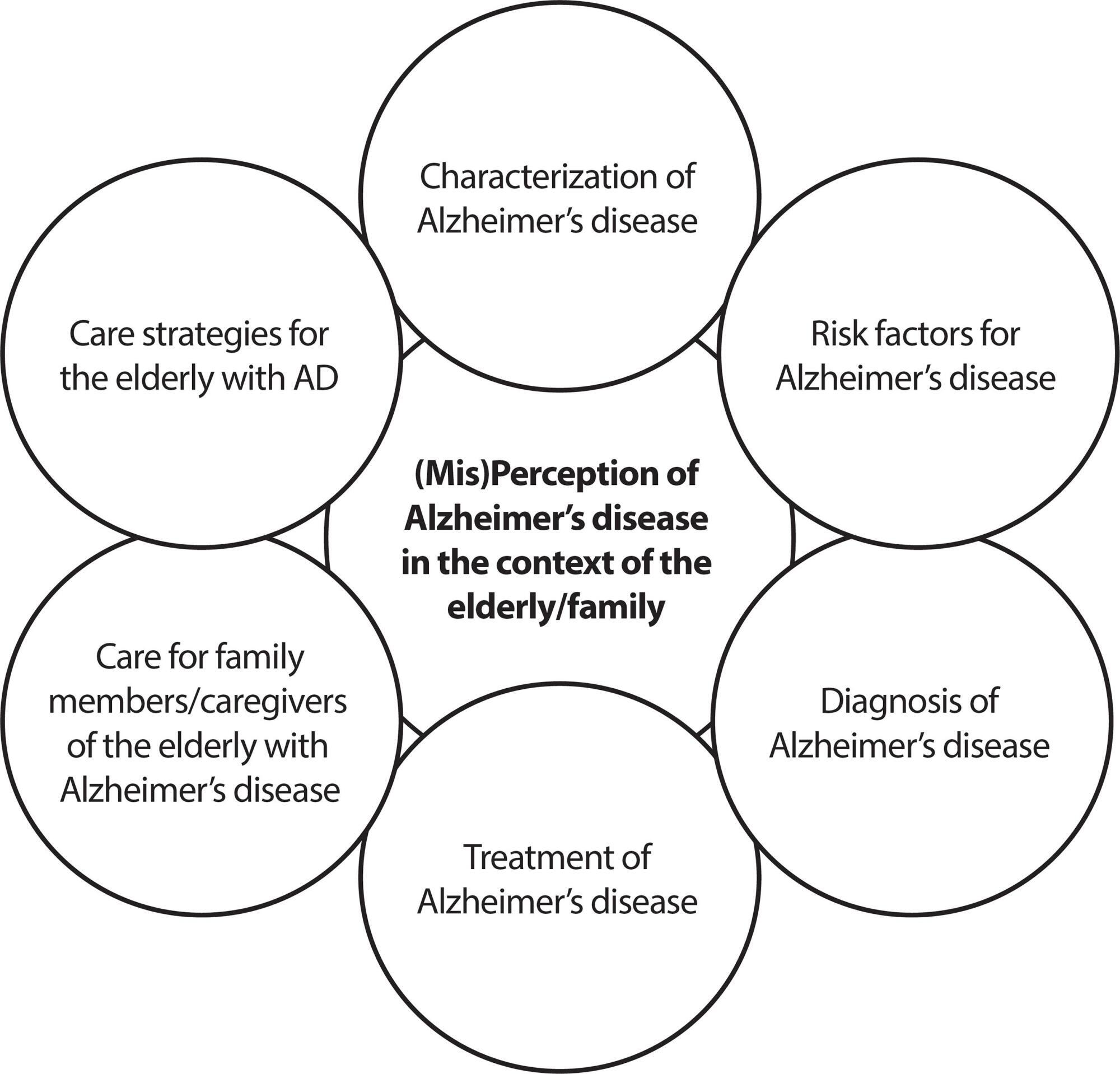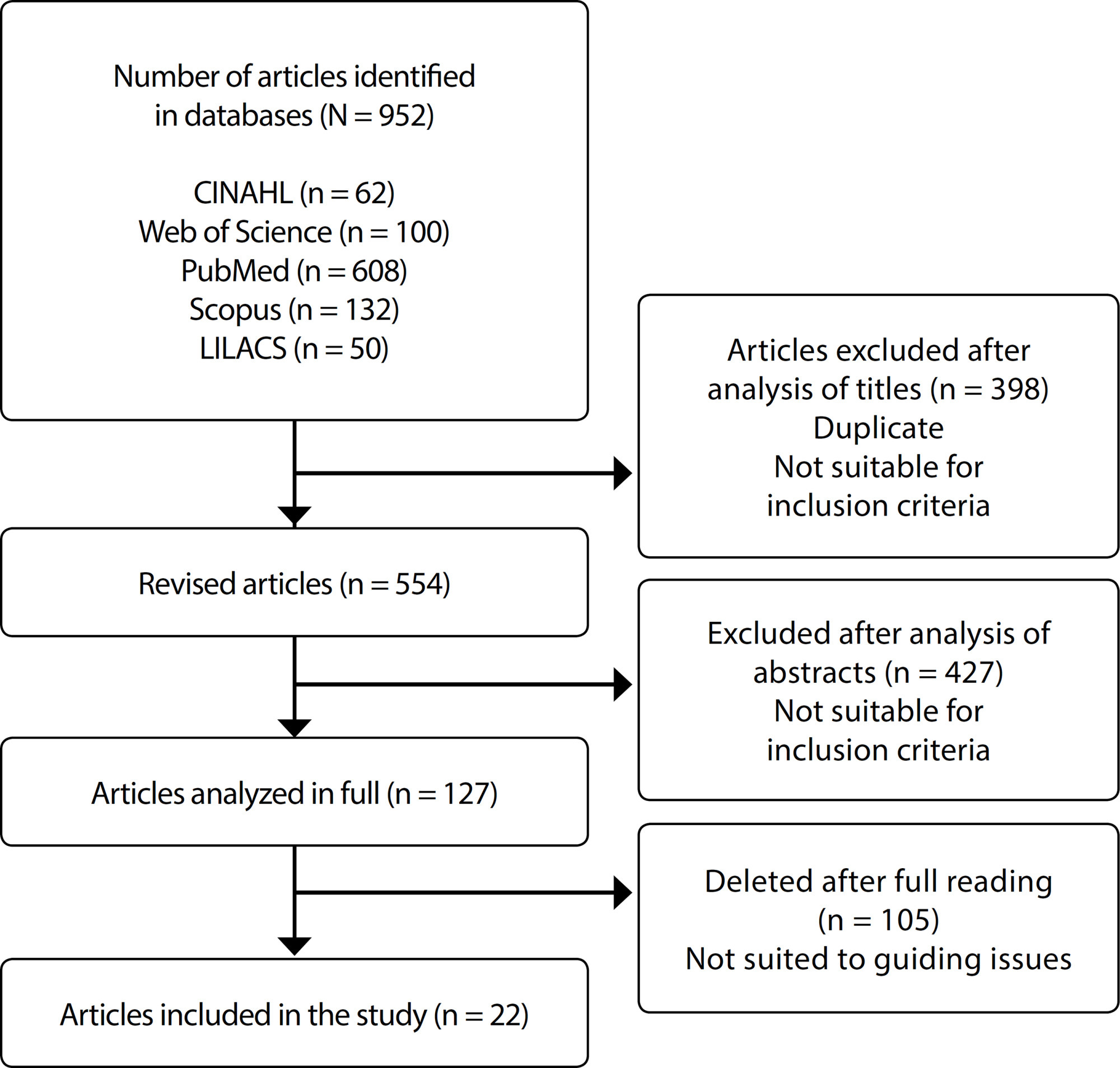-
Learning needs of Nursing students in technical vocational education
Revista Brasileira de Enfermagem. 2015;68(1):20-25
Abstract
Learning needs of Nursing students in technical vocational education
Revista Brasileira de Enfermagem. 2015;68(1):20-25
DOI 10.1590/0034-7167.2015680103i
Views0See moreObjective:
identify learning needs of students of Technical Vocational Education (TVE) in Nursing. Qualitative study conducted in a city of São Paulo state.
Method:
the subjects were students, teachers and coordinators of TVE and students of the bachelor degree who have had contact with TVE. Data collection was performed by questionnaire socioeconomic and cultural circles about the learning needs. For data analysis we used the content analysis.
Results:
it was found that students have difficulties contents not related to nursing as portuguese and mathematics, as well as introductory courses in the course of TVE which possibly may interfere negatively in learning specific content of nursing and the quality of health care.
Conclusion:
it is necessary to rethink the content taught and ways to teach from basic education, as well as the training of teachers who now works in the TVE.
-
Serious game e-Baby: nursing students’ perception on learning about preterm newborn clinical assessment
Revista Brasileira de Enfermagem. 2015;68(1):13-19
Abstract
Serious game e-Baby: nursing students’ perception on learning about preterm newborn clinical assessment
Revista Brasileira de Enfermagem. 2015;68(1):13-19
DOI 10.1590/0034-7167.2015680102i
Views0See moreObjective:
to evaluate students opinion regarding e-Baby educational technology.
Methodology:
exploratory descriptive study in which participated a sample composed of 14 nursing Portuguese students that used e-Baby digital educational technology in an extracurricular course. To achieve the aim of the study, the data collection was realized through an opinion instrument in Likert scale including the possibility of commentaries by students. Is was also collected data of participants’ characterization.
Results:
students made very satisfactory evaluations regarding the game e-Baby, varying since usability acceptation through suggestions of expansion of the game to other nursing themes.
Conclusion:
serious game e-Baby can be considered a didactic innovation and motivator tool of learning. Besides, it demonstrates have adequate interface in design and educative function aspects, evocating intense interaction between user and computational tool.

-
EDITORIAL01-01-2015
Challenges beyond the scientific knowledge production
Revista Brasileira de Enfermagem. 2015;68(1):7-8
Abstract
EDITORIALChallenges beyond the scientific knowledge production
Revista Brasileira de Enfermagem. 2015;68(1):7-8
DOI 10.1590/0034-7167.2015680101p
Views0For several decades, innumerous appeals and reflections on how to build the nursing science and achieve visibility in the scientific world led researchers to make efforts to produce knowledge that contributed to the well-being of people, improving their quality of life, relieving their suffering and transforming the reality in which we live. In addition to […]See more
-
ORIGINAL ARTICLE10-19-2020
Spatial patterns of multidrug-resistant tuberculosis: correlation with sociodemographic variables and type of notification
Revista Brasileira de Enfermagem. 2020;73:e20190845
Abstract
ORIGINAL ARTICLESpatial patterns of multidrug-resistant tuberculosis: correlation with sociodemographic variables and type of notification
Revista Brasileira de Enfermagem. 2020;73:e20190845
DOI 10.1590/0034-7167-2019-0845
Views0ABSTRACT
Objective:
Correlate the cases of multidrug-resistant tuberculosis and its spatial patterns with the type of notification and sociodemographic variables.
Method:
Ecological study carried out in the municipality of Belém, with 77 cases of multidrug-resistant tuberculosis registered in the Special Treatment Information System for Tuberculosis, between 2012 and 2016. For analysis, the data was debugged followed by geo-referencing in ArcGis 10.3 and Terra View 4.2.2. To relate the cases with the type of notification, the BioEstat 5.4 software was used, with a significance level of 95%.
Results:
Of the total, 40 (52%) were new cases; 27 (35%), relapses; and ten (13%) were re-enrolled after leaving. Multidrug-resistant tuberculosis was randomly distributed and related to income, household, territorial cluster and water supply. There was a concentration of cases in two administrative districts, corresponding to 28.5% and 27.3% of the total, with a median Sociodemographic Index.
Conclusion:
Behavior of multidrug-resistant tuberculosis influenced by sociodemographic indicators.
Keywords:EpidemiologyGeographic Information SystemsMultidrug-Resistant TuberculosisPublic HealthSpatial AnalysisSee more
-
ORIGINAL ARTICLE09-23-2022
Analysis of the concept of cardiovascular risk: contributions to nursing practice
Revista Brasileira de Enfermagem. 2022;75(4):e20210803
Abstract
ORIGINAL ARTICLEAnalysis of the concept of cardiovascular risk: contributions to nursing practice
Revista Brasileira de Enfermagem. 2022;75(4):e20210803
DOI 10.1590/0034-7167-2021-0803
Views0See moreABSTRACT
Objectives:
to analyze the concept of cardiovascular risk to support nursing practice.
Methods:
this is an analysis to define the concept of cardiovascular risk, through the use of eight steps of Walker’s and Avant’s framework, using a literature review in indexed scientific journals.
Results:
cardiovascular risk is defined in a broad and original way as a context of health and nursing care that makes it possible to identify modifiable (cardiometabolic, behavioral, psychosocial, cultural and occupational) and non-modifiable (biological) risk factors for cardiovascular diseases that act as early and interrelated markers, of multiple and heterogeneous etiology, predisposing to cardiovascular vulnerability.
Conclusions:
with the analysis and definition of the concept of cardiovascular risk, we realized that it will be possible to base nursing practice, with implications in clinical practice for identifying and reducing risk factors for cardiovascular diseases, with nursing relevance in the care of these subjects.

-
ORIGINAL ARTICLE07-13-2020
Awareness raising workshop for nursing students on the elderly with Alzheimer’s disease: contributions to education
Revista Brasileira de Enfermagem. 2020;73:e20190021
Abstract
ORIGINAL ARTICLEAwareness raising workshop for nursing students on the elderly with Alzheimer’s disease: contributions to education
Revista Brasileira de Enfermagem. 2020;73:e20190021
DOI 10.1590/0034-7167-2019-0021
Views0See moreABSTRACT
Objective:
To describe the contribution of an awareness-raising workshop for nursing students on Alzheimer’s disease in the context of the elderly/family.
Methods:
Strategic action-research developed with 15 university students from the sixth to the eighth semester of Nursing at a university institution in the Rio Grande do Sul. The data collected through semi-structured interviews, before and after an awareness-raising workshop on Alzheimer’s disease in elderly/family, were subjected to thematic content analysis.
Results:
Six categories were identified that concern (Mis) perception of Alzheimer’s disease in the context of elderly/ family, from the characterization; risk factors; diagnosis; treatment of Alzheimer’s disease; from care to family members/caregivers; and care strategies for the elderly with Alzheimer’s disease.
Conclusion:
The awareness-raising workshop enabled the students to broaden and deepen the knowledge on the theme of Alzheimer’s disease in the elderly.

-
REFLECTION12-13-2019
Women with fetal death: nurses’ care limitations
Revista Brasileira de Enfermagem. 2019;72:365-368
Abstract
REFLECTIONWomen with fetal death: nurses’ care limitations
Revista Brasileira de Enfermagem. 2019;72:365-368
DOI 10.1590/0034-7167-2018-0261
Views0ABSTRACT
Objective:
To present the limitations of the nursing care for women with fetal death, reflecting on this challenge for care practices.
Method:
Reflective study with theoretical focus on national and international publications, along with the experience of the authors in the area of women’s health and obstetrics.
Results:
There are limitations related to nursing care, which involve feelings of insecurity and powerlessness, inappropriate attitudes of these professionals in front of women, difficulties to manage emotional aspects, and structural problems of health services.
Final Considerations:
This study points out that there are challenges to qualify nursing care for women with fetal death, which included academic studies and continuing education in health services. Relational aspects should be valued and demand more sensitivity from nurses, with more empathic relationships in the care for women with fetal death.
Keywords:Fetal DeathHealth Services Needs and DemandNurse-Patient RelationsNursing CareWomen's HealthSee more -
ORIGINAL ARTICLE02-06-2023
Teaching entrepreneurship in undergraduate Nursing course: evaluation of an educational proposal
Revista Brasileira de Enfermagem. 2023;76(2):e20210244
Abstract
ORIGINAL ARTICLETeaching entrepreneurship in undergraduate Nursing course: evaluation of an educational proposal
Revista Brasileira de Enfermagem. 2023;76(2):e20210244
DOI 10.1590/0034-7167-2021-0244
Views0See moreABSTRACT
Objective:
To evaluate a proposal for teaching entrepreneurship in an undergraduate Nursing course that uses active methodologies and activities based on the theory of meaningful learning.
Methods:
Interventional, prospective study, with a quantitative perspective, with a total of 102 participating students, carried out from July 2017 to December 2019 at a public university in the state of Sao Paulo. Statistical analysis were performed by non-parametric Chi-square or Fisher’s exact tests, with differences considered statistically significant if p < 0.05.
Results:
Improvements were observed in almost all items evaluated, revealing that meaningful learning became more effective with the use of active teaching methodologies. Most students need adaptation and effort to be put into these methods.
Conclusions:
The proposal offers pedagogical content adaptation, specifically for nursing students. New research should expand teaching-learning techniques for the development of future nurses, preparing them adequately for the job market.

-
ORIGINAL ARTICLE10-18-2022
Health education for hospitalized patient in nursing care: a conceptual analysis
Revista Brasileira de Enfermagem. 2022;75(2):e20200459
Abstract
ORIGINAL ARTICLEHealth education for hospitalized patient in nursing care: a conceptual analysis
Revista Brasileira de Enfermagem. 2022;75(2):e20200459
DOI 10.1590/0034-7167-2020-0459
Views0INTRODUCTIONOver the years, the development of health education practices is related to the historical moment of society(). The nineteenth and twentieth centuries presented decisive situations in the evolution process that we know today as health education. Nursing began to consider health educational practices after Florence Nightingale initially focused on professional training. Florence contributed to the […]See more
-
ORIGINAL ARTICLE06-27-2019
Organizational climate and teamwork at the Family Health Strategy
Revista Brasileira de Enfermagem. 2019;72(3):721-727
Abstract
ORIGINAL ARTICLEOrganizational climate and teamwork at the Family Health Strategy
Revista Brasileira de Enfermagem. 2019;72(3):721-727
DOI 10.1590/0034-7167-2017-0770
Views0See moreABSTRACT
Objective:
to measure the organizational climate in the work of professionals from Family Health Strategy (FHS) teams.
Method:
a cross-sectional study carried out with 458 professionals belonging to 72 FHS teams in a municipality in Southern Brazil. Data collection occurred between March and July of 2016 with self-application of the Team Climate Inventory (TCI). Data were analyzed by means of a non-parametric ANOVA.
Results:
“Team Participation” was the best-rated domain (8.11), while “Task orientation” was the worst (7.51). Nurses obtained the highest mean in TCI (8.05), and dentists, the lowest (7.45).
Conclusion:
TCI is an appropriate and innovative tool for assessing the teamwork climate at the FHS. Identifying fragilities such as “task orientation” and relationships among professional categories of the team supports the planning of actions for organizational climate improvements and teamwork at the FHS.
-
TECHNOLOGICAL INNOVATION09-24-2022
Transitional care from the hospital to the home in heart failure: implementation of best practices
Revista Brasileira de Enfermagem. 2022;75(1):e20210123
Abstract
TECHNOLOGICAL INNOVATIONTransitional care from the hospital to the home in heart failure: implementation of best practices
Revista Brasileira de Enfermagem. 2022;75(1):e20210123
DOI 10.1590/0034-7167-2021-0123
Views0See moreABSTRACT
Objectives:
Assess the compliance of the implementation of better evidence in the transitional care of the person with heart failure from the hospital to the home.
Methods:
Evidence implementation project according to the JBI methodology in a cardiology hospital in São Paulo. Six criteria were audited before and after implementing strategies to increase compliance with best practices. 14 nurses and 22 patients participated in the audits.
Results:
In the baseline audit, compliance was null with five of the six criteria. Strategies: training of nurses; reformulation of the hospital discharge form and guidance on self-care in care contexts; and making telephone contact on the 7th, 14th and 21st days after discharge. In the follow-up audit, there was 100% compliance with five of the six criteria.
Conclusion:
The project made it possible to increase the compliance of transitional care practices in people with heart failure with the recommendations based on the best evidence.

Search
Search in:
Nuvem de Tags
Aged (144) Atenção Primária à Saúde (239) COVID-19 (104) Cuidados de Enfermagem (269) Educação em Enfermagem (151) Educação em Saúde (139) Enfermagem (930) Estudos de Validação (131) Health Education (144) Idoso (208) Mental Health (149) Nursing (987) Nursing Care (306) Patient Safety (151) Primary Health Care (284) Qualidade de Vida (104) Quality of Life (106) Saúde Mental (145) Segurança do Paciente (150) Validation Studies (108)



